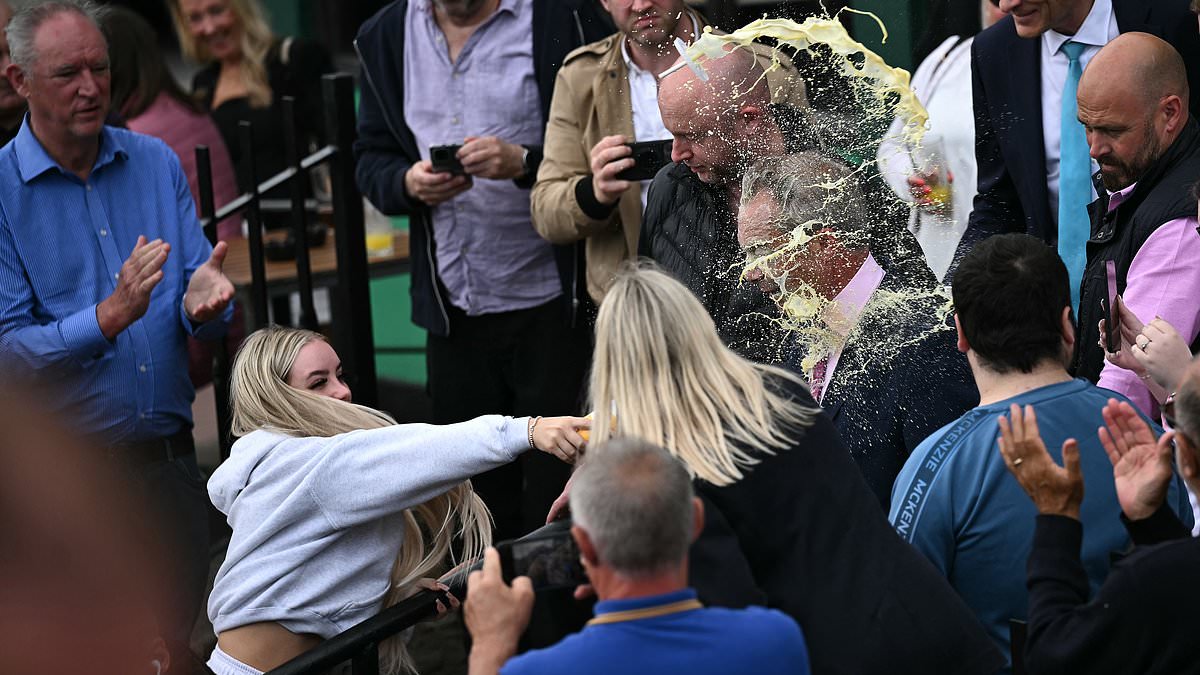Nigel Farage’s double volte-face on Monday, when he announced that not only was he taking over as leader of Reform, but he was also standing as its candidate in Clacton, has turbocharged the party’s poll ratings.
According to YouGov, it’s now within two points of the Conservatives. It’s not fanciful to suggest that Reform could soon be ahead of the Tories.
Whatever else he may be, Nigel Farage is box-office gold. Without him, Reform was merely an irritant for the Conservatives. With him, it looks like being an Exocet missile exploding at the very heart of Conservatism.
And that is precisely why his return to frontline politics is so worrying.
Farage is driven by a monumental ego. He believes that he is some sort of man of destiny, uniquely placed to shape the future.
Look at the way he made his comeback. Last week he was telling us that he would be putting his genius at the disposal of Donald Trump as Agent Orange plots a return to the White House, as if Britain was now too small a stage to accommodate his talents.
But after Farage’s acolytes spent the next few days whispering in his ear about how wonderful he was, he changed his mind. Britain’s General Election will, after all, now be graced with Nigel Farage’s presence.
His self-regard is not entirely misplaced. Farage makes things happen. His genius for campaigning swung a majority behind the Leave camp in the EU referendum. He connects with people in a way that only Boris has ever been able to match.
This time round, however, his aim is to bring about the destruction of the Conservative Party – in large measure because it has refused to recognise him as the political prodigy he sees himself as.
Ask yourself this: if Farage had been given a peerage after Brexit, do you think he would now be campaigning to destroy the Conservative Party? Or, if the Tories had schmoozed him and flattered him and told him how desperate they were to have him as a member, do you think he would now be doing anything other than trying to save its skin?
Farage’s political career has been spent outside the Conservative Party not because of any great ideological differences but because he is incapable of being anything other than a one-man-band.
Pretty much every political ally he has ever had has become an enemy and every alliance he has ever forged has shattered amid acrimony.
Farage was instrumental in helping Tory turncoat Douglas Carswell become UKIP’s first MP – in Clacton, where Farage is now standing. However, it didn’t take long for Farage to fall out with his only man in the House of Commons.
Tellingly, one factor behind their split was Carswell’s alleged refusal to support a knighthood for Farage. It’s like the old joke about Peter Mandelson: ‘Why do people take an instant dislike to PM? Because it saves time.’
The truth is that Reform’s entire campaign over the next four weeks will be driven by one thing: Nigel Farage’s wounded ego. Spurned by the Tories, he wants to destroy them.
The Conservatives have not got much right in this election. But their central message about Reform – that a vote for the party is, in effect, a vote for Labour – is spot on.
Reform’s core purpose is to destroy the Tory Party by splitting the anti-Labour vote and then rise from the ashes to become the dominant party of the Right.
If you’re unhappy with the Tories – who isn’t? – it might seem a good idea to give them a kick by voting for Nigel Farage. Bring them to their senses and all that.
But in reality, the larger the Reform vote, the larger the Labour majority. And the larger the Labour majority, the more irrelevant the remaining Tory MPs will be.
Starmer’s people will have the power, crucially, to neuter any opposition for the next five years. And will be guaranteed at least two terms.
I have no love for the Conservative Party. I have voted Labour far more often than I have voted for the Tories. But I understand that democracy needs a credible opposition whoever is in power.
One of the reasons our politics has been so mad for so much of the recent past is that Labour provided no credible opposition when Jeremy Corbyn was party leader.
Farage’s Reform is a kind of mirror-image of Corbyn’s Labour. While Corbyn was adored by one section of the electorate but loathed by everyone else, so Farage is hailed as a hero by his supporters but regarded as fringe by the mainstream. You don’t seek election as an MP seven times and lose every time – as Farage has done – if you’re the voice of the majority.
And just as Corbyn’s 2019 manifesto was a ragbag of supposedly popular policies – free broadband, anyone? – which didn’t survive a moment’s scrutiny, so Reform’s promises, such as slashing taxes at the same time as hugely increasing spending, aren’t a real programme for power.
Ironically, the more successful Farage is in splitting the anti-Labour vote, the more likely a Starmer administration is to undo the one undoubted success of his career: Brexit.
Does he really want to become the author of his own triumph’s demise?
